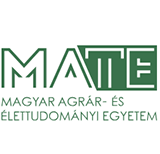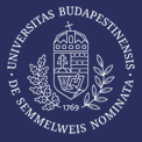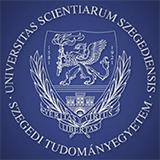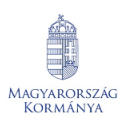Detailed introduction of University of Pannonia:
Introduction
The University of Pannonia is a well-known public university in Veszprem, Hungary. It conducts research and teaching activities in major fields such as engineering, economics, information technology, humanities and agricultural sciences, and provides relevant courses. Its research and teaching activities focus on sustainable development, and actively participate in international projects, providing students and researchers with broad international exchange opportunities.
Overview
Student size: There are about 4,163 students, including 341 international students.
Faculty: There are 357 faculty members, of which international faculty members account for 3%.
History and establishment time
The school was founded in 1949. It was originally a regional college of Budapest University of Technology. In 1951, it became an independent Veszprem University of Chemical Technology. In 1991, it was renamed Veszprem University and officially renamed University of Pannonia in 2006.
School strength
Teaching resources and facilities: The school provides students with rich teaching resources and advanced teaching facilities, with modern laboratories, libraries with rich collections, etc. to meet the learning and research needs of students from different majors.
Scientific research cooperation: actively cooperate with domestic and foreign universities and research institutions to jointly carry out scientific research projects and academic exchange activities. The many prestigious international projects hosted by the university provide researchers and students with broad international exchange opportunities and improve the teaching quality of related majors.
Academic achievements: The university holds domestic and international research conferences every year, and has achieved fruitful research results in disciplines such as engineering, economics, and information technology, making important contributions to the development of related fields in Hungary and the world.
Institutional nature
Public non-profit university.
Educational philosophy
Focus on practice and sustainable development, emphasize student-centeredness, and strive to provide students with high-quality education and training, cultivate professional talents with innovative spirit and practical ability, enable students to apply what they have learned to practical work, and contribute to social and economic development.
Key laboratories and disciplines
Key disciplines: Engineering, economics, information technology, humanities and agricultural sciences are the key disciplines of the university. Among them, engineering is ranked 1001+ in the QS World University Rankings, covering general engineering, chemical engineering, electrical and electronic engineering, mechanical and aerospace engineering and other professional directions.
Key laboratories: The university has many advanced laboratories and research centers, such as Soós Ernő Research and Development Center, etc., provide good research conditions for researchers and students to carry out cutting-edge research in related fields.
Faculty
The school has five colleges, namely: School of Economics, School of Engineering, George Agricultural College, School of Information Technology, and School of Modern Linguistics and Social Sciences.
Ranking
QS World University Rankings 2025: 1201-1500.
QS Emerging Europe and Central Asia Rankings 2022: 106th.
Expenses
Undergraduate tuition: US$3 per year for Hungarian citizens and at least US$2,800 per year for international students.
Master's tuition: US$4,500 per year for international students.
Campus
Location and environment: The main campus is located in Veszprem, western Hungary. The city has a long history and rich cultural heritage. The campus is surrounded by beautiful natural environment and is close to attractions such as Lake Balaton, providing students with a good learning and living atmosphere.
Campus facilities: The campus is fully equipped with modern teaching buildings, libraries, laboratories, student dormitories, sports stadiums, cultural activity centers and other teaching and living facilities to meet students' learning and living needs. The school's dormitory facilities are complete, providing students with a comfortable living environment. At the same time, the school also provides students with a wealth of sports activities and cultural and entertainment activities to promote the all-round development of students.
-

Hungarian University of Agriculture and Life Sciences
-

University of Pécs
-

University of Debrecen
-

Budapest University of Technology and Economics
-

Semmelweis University
-

University of Pannonia
-

University of Szeged
-

Eötvös Loránd University
-

University of Miskolc
-

University of Sopron
-

Mesoamerican University
-

Istmo University
-

Mariano Galvez University of Guatemala
-

Regional University of Guatemala
-

Galileo University
-

Francisco Marroquín University
-

Rafael Landívar University
-

University of the Valley of Guatemala
-

University of San Carlos of Guatemala
-

Technological Institute of Tlaxcala Plateau
-

Golfo University
-

Technological University of South Sonora
-

Technological University of Huejotzingo
-

Tizimín Institute of Technology
-

Chilpancingo Institute of Technology
